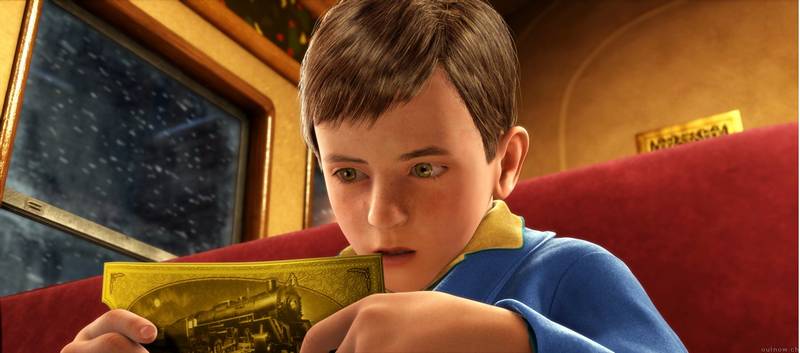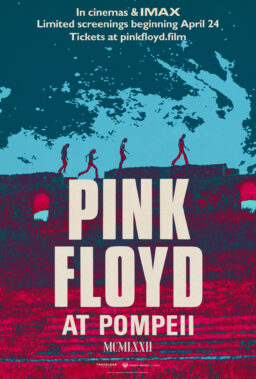From: Sgt. Jeremy Ricci, Fort Riley, KS
Ebert: The word “prejudiced” often translates as “disagrees with me.” I might suggest that gamers have a prejudiced view of their medium, and particularly what it can be. Games may not be Shakespeare quite yet, but I have the prejudice that they never will be, and some gamers are prejudiced that they will.
On the contrary, Mr. Ebert, I find that rarely will ‘prejudiced’ translate to ‘disagrees with me’. What he was suggesting, however, was that you have come to a conclusion in which you have deemed video games as ‘less than art’, which was formed without knowledge, thought, or reason. By definition, sir, you are prejudiced toward the concept of video games as art forms. Your suggestions that you have a prejudice that games will never be ‘Shakespeare’ simply suggests that you have come to that conclusion without any knowledge or reason pertaining to the realm of video games.
Ebert: Perhaps if the experience moves your bowels, it is worthy of some serious medical study. Many experiences that move me in some way or another are not art. A year ago I lost the ability (temporarily, I hope) to speak. I was deeply moved by the experience. It was not art.
You have a point sir, but you also prove one. While your loss is tragic, should you write about it, would that not be considered art? Or would that book merely be a collection of words to describe an event in your life? You can define art however you want, but in its most simple form, art is nothing more than the expression of self. Given that there are many people who come together to express themselves and certain ideas in videogames, I think it’s safe to say some degree of art is involved. Do you not think it unfair, at least in the slightest, to come to a conclusion based only on your inexperience?
Ebert: A reviewer is a reader, a viewer or a player with an opinion about what he or she has viewed, read or played. Whether that opinion is valid is up to his audience, books, games and all forms of created experience are about themselves; the real question is, do we as their consumers become more or less complex, thoughtful, insightful, witty, empathetic, intelligent, philosophical (and so on) by experiencing them? Something may be excellent as itself, and yet be ultimately worthless. A bowel movement, for example.
If I understand you correctly, and I think I do, you are saying that we should judge games and compare them to a bowel movement, and by that you mean they are ultimately worthless? I apologize for what I am about to say, but you are being extremely absurd. Can you tell me what form of art makes us more insightful, intelligent, or even philosophical? Did the wonderful smile of Mona Lisa make you any more thoughtful, insightful, complex, or witty? Does watching a play on Broadway, or attending your local Opera showing make you any more philosophical or intelligent? If it does, then why, sir, is it not possible for a video game to stir the same emotions and though behind these simple forms of art? Unfortunately, that is an answer you cannot deliver, as it’s not there.
Ebert: He is right again about me. I believe art is created by an artist. If you change it, you become the artist. Would “Romeo and Juliet” have been better with a different ending? Rewritten versions of the play were actually produced with happy endings. “King Lear” was also subjected to rewrites; it’s such a downer. At this point, taste comes into play. Which version of “Romeo and Juliet,” Shakespeare’s or Barker’s, is superior, deeper, more moving, more “artistic”?
Again, by your definition, we are all artists. Many games give us the ability to change what we participate in. From simple plot line deviations to deep insightful side quests, games offer us the opportunity to alter the experience presented to us. To construct these stories as we see fit and effect the outcome (however minor the result of our actions) gives us the ability to control this art and our journey. Does a musician not control the instrument he plays?
Ebert: If you can go through “every emotional journey available,” doesn’t that devalue each and every one of them? Art seeks to lead you to an inevitable conclusion, not a smorgasbord of choices. If next time, I have Romeo and Juliet go through the story naked and standing on their hands, would that be way cool, or what?
Does being sad and angry that you’ve lost a loved one, but being happy at the same time that you still have your family devalue any of the prior emotions? Even in a poem such as “The Raven” by Edgar Allen Poe, there are multiple hints of mixed emotions and confusion. Would you doubt his work as well? Is he any less of an artist?
Ebert: Spoken with the maturity of an honest and articulate 4-year old. I do not have a need “all the time” to take myself away from the oppressive facts of my life, however oppressive they may be, in order to go somewhere where I have control. I need to stay here and take control. Right now, for example, I cannot speak, but I am writing this. You lose some, you win some.
Ah, wonderful choice of words sir. To go back to Edgar Allen Poe, whom you seem to believe represents art, specifically in horror stories, I want to talk about his essay, “The Philosophy of Composition” written after “The Raven.” He talks about how he wrote the poem, and how none of it was constructed by mistake or chance. He claims that no aspect of the poem was an accident, rather, it was based on total control by the author. Would you now stoop so low as to call Edgar Allen Poe an honest and articulate 4-year old? He acknowledges that control can be a definitive factor in the creation of art, yet you scrutinize Barker for similar ideals?
In conclusion, I ask only that you refrain from the grouping of all video games as one non-artistic medium, and come to accept that in the end, art is what we make of it. There are good movies, and bad, great books, and poor. The same applies to video games, where some stories are great, carefully crafted and artistic, while others are chaotic, unorganized, and sporadic. Experience is necessary to be one of those reviewers you spoke so highly about, only it seems you write not for an audience, but for yourself, and even then, you lack the experience in the said genre to do that. Learn and let live, as education is also a part of understanding art.











